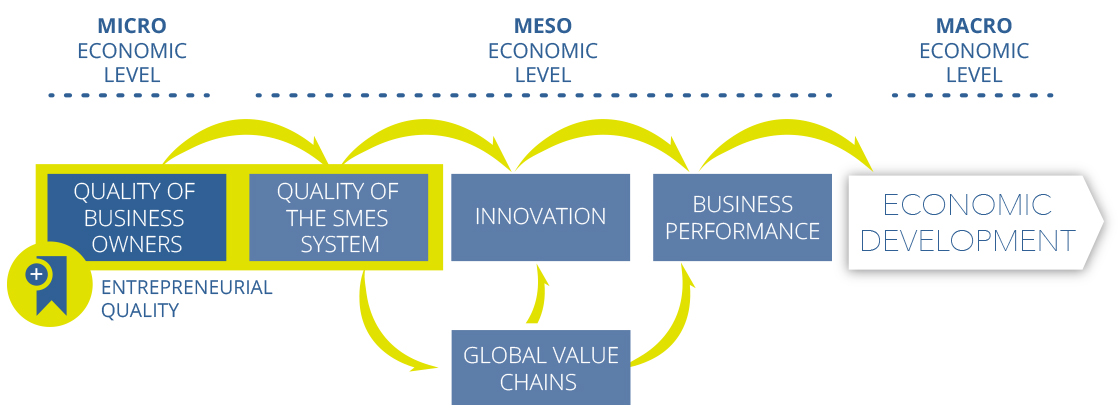The PYMED’s research activity is inspired by a core hypothesis: the characteristics of business owners in a territory affect the performance and results of SMEs at a microeconomic level, and the impact of these businesses at a macroeconomic level, beyond the economic development of the area.
On the microeconomic scale, there is a series of factors (economical, psycho-social, and the environment) that determine the appearance and the ‘quality’ of entrepreneurs/business owners, given that this is defined by their entrepreneurial dynamism,
Moreover, at the mesoeconomic level, the quality of entrepreneurs/business owners determines the characteristics of the business in a specific territory, that is, the quality of the business system. This is also defined by a series of factors that influence the ability of businesses to drive economic growth and development. Among those, the PYMED prefers to focus on business innovation.
We also particularly study the relationships established between companies, giving place to productive chains (client-supplier relationships). Concerning this, we are especially interested in the role played by SMEs in Global Value Chains (GVC), governed by big corporations and whose growing relevance is the result of the process of productive globalization.
The ‘entrepreneurial quality’ of the business system therefore determines the results of the territory in terms of employment creation, income growth and economic development.

Specific Research lines:
- Entrepreneurs, business creation and business owner quality.
- Business structure and economic development.
- SMEs and Global Value Chains.
- Innovation and business opportunities.
- Social entrepreneurship and social economy.
- Entrepreneurship and touristic SMEs.
- Innovation policies and business promotion.
- Education for entrepreneurship.



